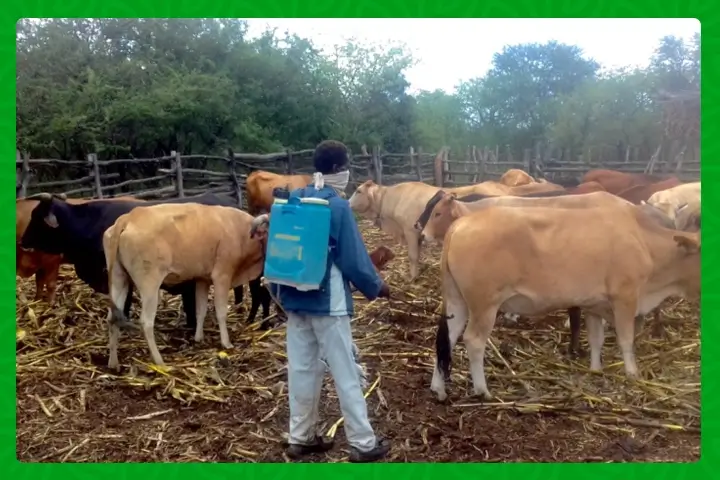
In a significant stride towards safeguarding Zimbabwe’s precious cattle population, the nation’s relentless battle against the scourge of tick-borne diseases, notably the notorious ‘January Disease,’ has yielded promising results. According to a senior government official, Zimbabwe is witnessing a notable decline in livestock fatalities attributed to tick-borne ailments, marking a pivotal turning point in the country’s veterinary health landscape.
The onset of January typically heralds the peak of Theileriosis, a debilitating tick-borne disease that poses a grave threat to livestock. In response, the government has diligently collaborated with farmers, advocating for regular cattle inspections to detect and combat the presence of ticks, thereby curbing the spread of the disease.
Over recent years, Zimbabwe has mourned the loss of nearly a million cattle to tick-borne diseases, prompting a proactive response from the government. This concerted effort has manifested through the implementation of various measures, including the adoption of the 5-5-4 dipping rota, the Presidential tick-grease program, and extensive construction and rehabilitation of dip tanks nationwide.
Jairus Machakwa, Director of the Department of Veterinary Services, heralded the tangible progress achieved since 2019, following the government’s decisive intervention. Notably, the provision of tick-grease, distributed free of charge across all regions since 2020, has significantly bolstered disease control efforts. Moreover, the imminent rollout of a promising vaccine, nearing the conclusion of its trial phase, instills optimism for further advancements in combatting January Disease and related tick-borne ailments.
Machakwa emphasized the government’s proactive stance in addressing anthrax outbreaks, noting a discernible decrease in cases among both cattle and wild animals. Asserting the safety and efficacy of control measures, he underscored the absence of reported anthrax incidents nationwide, attributing this success to stringent regulatory frameworks enshrined in the Animal Health Act.
Acknowledging the swift response to encountered challenges, Machakwa highlighted the prompt disbursement of funds by the Treasury to address anthrax outbreaks swiftly. He emphasized the imperative of proactive vaccination strategies, ensuring ample vaccine stockpiles to preemptively combat future anthrax crises.
Zimbabwe’s triumph over livestock epidemics stands as a testament to the efficacy of proactive government interventions, collaborative efforts with farmers, and ongoing advancements in veterinary science. As the nation continues to fortify its defenses against prevalent diseases, the concerted commitment to safeguarding its invaluable livestock assets remains unwavering.
Original article written by GRACIOUS DANIEL and ROPAFADZO MAKOSI
Stay updated with the latest farming tips and agriculture industry news from Africa by subscribing to our newsletter. Don’t miss out on valuable insights and updates. Follow us on Twitter, LinkedIn, and Facebook to join our farming community and stay connected with us.



















